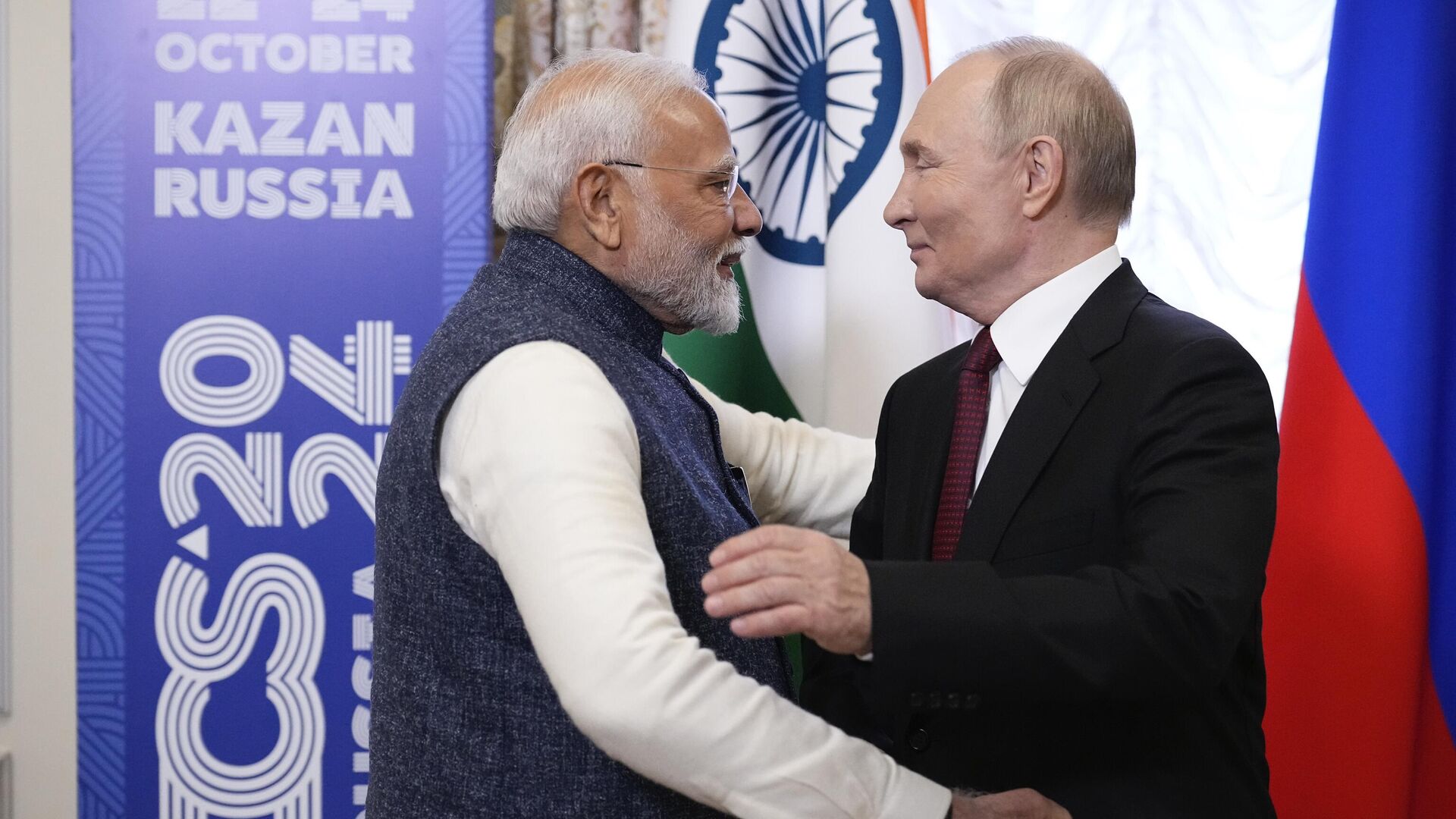https://sputniknews.in/20250716/western-sanctions-spur-boom-in-india-russia-trade---russian-envoy-9456315.html
Western Sanctions Spur Boom in India-Russia Trade - Russian Envoy
Western Sanctions Spur Boom in India-Russia Trade - Russian Envoy
Sputnik India
MOSCOW (Sputnik) - Western sanctions against Russia have become a catalyst for growth in trade between Russia and India, Russian Ambassador to India Denis... 16.07.2025, Sputnik India
2025-07-16T17:01+0530
2025-07-16T17:01+0530
2025-07-16T19:22+0530
indo-russian relations
india
russia
middle east
russian envoy to india denis alipov
https://cdn1.img.sputniknews.in/img/07e8/0a/16/8306419_0:0:3072:1728_1920x0_80_0_0_d70e991d0a715a0eb1088221455e8ee6.jpg
"After massive sanctions were introduced against Russia, they were bound to have a negative impact on our trade relations given their comprehensive scale. However, paradoxically, these sanctions became a catalyst for our relationship, and for the first time in the history of Russian–Indian ties, we have achieved unprecedented growth in trade," Alipov told Rossiya 24.The ambassador attributed the significant rise in trade primarily to a multiple increase in Russian export volumes, particularly agricultural products like sunflower oil—which now supplies half of India’s market—alongside pulses and fertilisers.At the same time, Indian exports to Russia, mainly equipment, electrical goods, and medicines, are growing steadily. Alipov expressed confidence that the task of balancing trade between the two countries will gradually be resolved.The escalating Middle East conflict, marked by missile strikes against Iran by Israel and the United States, has disrupted goods transit through the Suez Canal, prompting urgent calls for alternative trade routes, Alipov furthter stated.The proposed free trade area and alternative maritime corridors signal deepening ties and strategic economic collaboration amid shifting global trade dynamics, he concluded.
india
russia
middle east
Sputnik India
feedback.hindi@sputniknews.com
+74956456601
MIA „Rossiya Segodnya“
2025
Sputnik India
feedback.hindi@sputniknews.com
+74956456601
MIA „Rossiya Segodnya“
News
en_IN
Sputnik India
feedback.hindi@sputniknews.com
+74956456601
MIA „Rossiya Segodnya“
Sputnik India
feedback.hindi@sputniknews.com
+74956456601
MIA „Rossiya Segodnya“
india, russia, middle east, russian envoy to india denis alipov
india, russia, middle east, russian envoy to india denis alipov
Western Sanctions Spur Boom in India-Russia Trade - Russian Envoy
17:01 16.07.2025 (Updated: 19:22 16.07.2025) MOSCOW (Sputnik) - Western sanctions against Russia have become a catalyst for growth in trade between Russia and India, Russian Ambassador to India Denis Alipov said on Wednesday.
"After massive sanctions were introduced against Russia, they were bound to have a negative impact on our trade relations given their comprehensive scale. However, paradoxically, these sanctions became a catalyst for our relationship, and for the first time in the history of Russian–Indian ties, we have achieved unprecedented growth in trade," Alipov told Rossiya 24.
The ambassador attributed the significant rise in trade primarily to a multiple increase in Russian export volumes, particularly agricultural products like sunflower oil—which now supplies half of India’s market—alongside pulses and fertilisers.
At the same time, Indian exports to Russia, mainly equipment, electrical goods, and medicines, are growing steadily. Alipov expressed confidence that the task of balancing trade between the two countries will gradually be resolved.
“We have worked closely together for many years in nuclear energy and heavy engineering, not to mention our military-technical cooperation. Our humanitarian, cultural, and educational ties are expanding as well,” Alipov noted, highlighting the rise in Indian students in Russia from 20,000 to 30,000.
The escalating Middle East conflict, marked by missile strikes against Iran by Israel and the United States, has disrupted goods transit through the Suez Canal, prompting urgent calls for alternative trade routes, Alipov furthter stated.
“In this regard, there are very promising opportunities between us [Russia] and India, with a vast amount of work to be done to activate our routes between our countries via the Vladivostok-Chennai maritime corridor, with access to the Northern Sea Route,” the ambassador said. “India is very interested in these prospects, and we are currently engaged in active discussions to establish alternative routes for trade and economic cooperation.”
The proposed free trade area and alternative maritime corridors signal deepening ties and strategic economic collaboration amid shifting global trade dynamics, he concluded.

